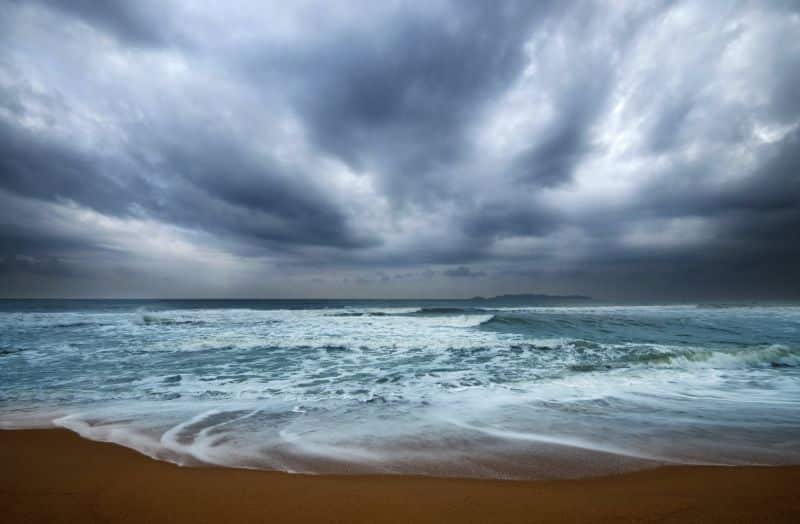A family day at the beach is a quintessential summer activity that combines relaxation, play, and exploration. But, as we all know, a day beside the sea can quickly turn from tranquil to tumultuous if proper safety precautions are not taken.
In this guide, we will highlight six essential safety tips to ensure your family’s beach outing remains fun-filled and incident-free. From sunscreen application, to tide awareness, to water safety, we’ve got you covered for a safe and enjoyable day on the sands.
If you’re planning a beach day with your loved ones, read on to learn how to keep everyone safe and happy.

1. Sun Protection
The sun’s rays are strongest between 10 a.m. and 4 p.m., so it’s best to plan your beach activities around these hours. However, if you do find yourself at the beach during this time frame, make sure everyone in your family is adequately protected from the sun. This includes applying sunscreen with an SPF of at least 30, wearing hats and sunglasses, and seeking shade whenever possible.
A good idea is to set a timer for every 2 hours to remind yourself and your family members to reapply sunscreen. It’s also essential to remember that sunscreen needs time to absorb into the skin, so make sure to apply it at least 30 minutes before heading out into the sun.
2. Water Safety
Never underestimate the power of the ocean. Even if you consider yourself a strong swimmer, always exercise caution when entering the water. Make sure to supervise children at all times and only swim in designated areas with lifeguards on duty. If you or a family member is not a strong swimmer, consider using a life jacket or other flotation device. Namely, the British Swim School professionals suggest that swimming lessons for kids are the best way to ensure water safety. Becoming confident in water skills can prevent accidents from occurring, and also help you worry less about them.
If you have a baby, ensuring water safety starts with selecting high-quality and trusted products designed for infants. A mambobaby float is made for babies to safely introduce them to water while building their confidence and comfort. Using proper safety tools can create a positive and secure environment for your little one to enjoy water activities.
3. Rip Current Awareness
Rip currents are strong, narrow channels of water that can pull swimmers out to sea. They are often difficult to spot and even stronger swimmers can struggle against them. If you or a family member is caught in a rip current, remember not to panic and swim parallel to the shore until you are out of the current’s pull. You can also signal for help by shouting or waving your arms. Some signs that a rip current is present include discolored or choppy water, debris being pulled out to sea, and a break in the pattern of incoming waves.
4. Weather Watch

Keep an eye on the weather forecast before heading to the beach, and be prepared to change your plans if necessary. Thunderstorms and lightning can quickly turn a peaceful beach day into a dangerous situation. If you hear thunder or see lightning, seek shelter immediately and do not return to the beach until at least 30 minutes after the last sound of thunder. It can be tempting to wait out the storm under a beach umbrella, but this is not safe as it still leaves you vulnerable to lightning strikes.
5. Food and Hydration
Spending a day under the sun can be dehydrating, so make sure to bring plenty of water for your family. Avoid sugary drinks that can cause dehydration and stick to water or sports drinks with electrolytes. Also, pack nutritious snacks like fruits, vegetables, and sandwiches to keep everyone fueled and energized. Avoid consuming alcohol, as it can impair judgment and increase the risk of accidents. There are also often food vendors at the beach, but be cautious about purchasing from them as their food may not be handled or stored properly.
6. First Aid Kit
Always carry a well-stocked first aid kit with you to the beach. Injuries like cuts and scrapes can happen, and it’s important to have the necessary supplies to clean and dress wounds. Other items that should be included in your first aid kit are sunscreen, insect repellent, pain relievers, and any necessary medications. It’s also a good idea to have emergency contact information stored in your phone or written down on a piece of paper in case of an emergency.
A great way to keep your first aid kit organized and easy to carry is by using a waterproof bag or container. If you need to use any items from the kit, make sure to restock them before your next beach outing.

Beach outings are a wonderful way to foster family bonding and create lasting memories. However, they also require careful planning and adherence to safety precautions to ensure that they remain fun and free from dangerous incidents.
By following these six important safety tips: sun protection, water safety, rip current awareness, weather watch, adequate food and hydration, and keeping a well-stocked first aid kit, you can ensure that your family is safeguarded against common beach-related risks. Remember, the key to a successful beach day is preparation and mindfulness towards safety. Here’s to many safe and enjoyable beach days to come!
